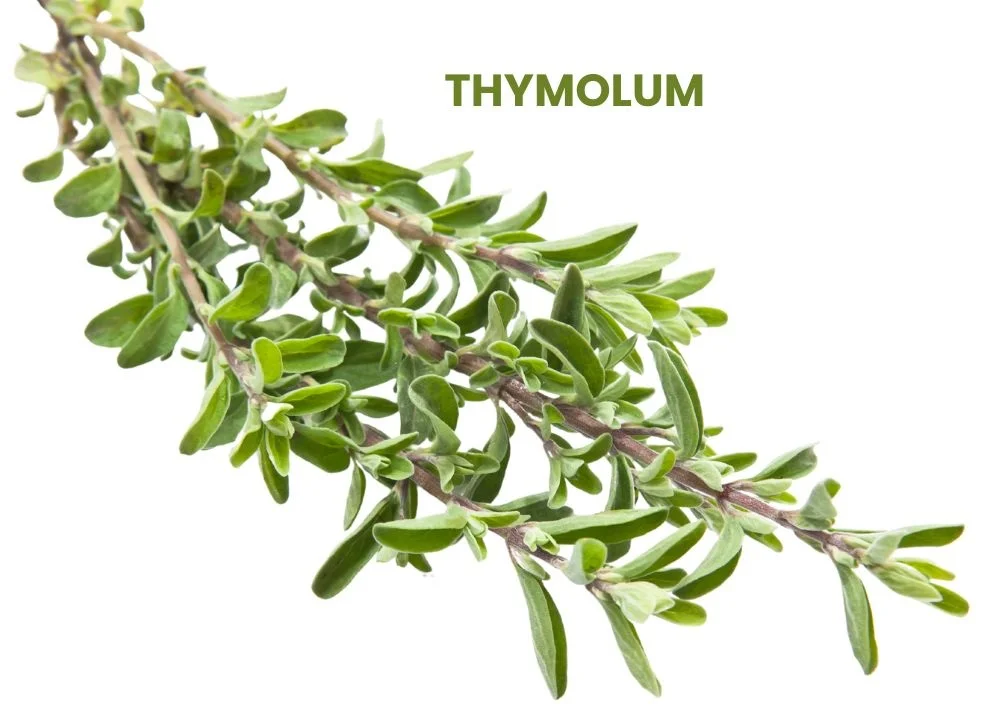Thymolum, commonly known as Thyme Camphor or Thymol, is a homeopathic remedy primarily used in the treatment of genito-urinary disorders.
It shows a strong affinity for the male reproductive system, addressing conditions like seminal emissions, priapism, and prostatorrhea (excessive secretion from the prostate).
Additionally, Thymolum has been used as a specific treatment for hookworm disease.

Table of Contents
ToggleSOURCE INFORMATION
Scientific Classification
- Family: Lamiaceae (mint family)
- Botanical Name: Thymus vulgaris (the source of Thymol)
- Chemical Formula of Thymol: C₁₀H₁₄O
- Common Name: Thyme Camphor
Origin
- Derived from the essential oils of thyme plants, Thymol has been used traditionally as an antiseptic and disinfectant.
- Its therapeutic applications in homeopathy, especially concerning sexual health, were identified later through homeopathic provings.
Historical Use
- Thymol has been used for centuries in traditional medicine for its antiseptic properties.
- In the late 19th and early 20th centuries, its uses expanded into homeopathy for treating genito-urinary issues and as a vermifuge (an agent used to expel parasitic worms), particularly in hookworm disease.
DRUG PATHOGENESIS
- Thymolum acts on the male reproductive organs and the urinary tract, causing pathological changes like involuntary seminal emissions, irritability, and fatigue.
- Its primary action is related to sexual neurasthenia (a type of nervous exhaustion), leading to a range of symptoms, including emotional disturbances, fatigue, and urinary issues.
PHYSICAL CONSTITUTION, DIATHESIS, AND TEMPERAMENTS
- Physical Constitution: Suitable for men with weakened sexual vitality and those prone to recurrent seminal emissions.
- Diathesis: Genito-urinary disorders, particularly those linked to sexual exhaustion.
- Temperament: Typically irritable, demanding, and seeking company but often frustrated due to physical and mental fatigue.
KEY CHARACTERISTICS
- Sexual Neurasthenia: Patients often exhibit excessive sexual thoughts, leading to profuse nightly emissions and perverted dreams.
- Mental and Physical Fatigue: Characterized by a constant feeling of tiredness, particularly after physical or mental exertion.
- Hookworm Disease: Specifically noted for its efficacy in treating hookworm infections, particularly in tropical regions.
DETAILED ORGAN SYMPTOMS
MENTAL SYMPTOMS
- Irritability: Becomes easily angered and frustrated, especially if things don’t go their way.
- Craving Company: Prefers not to be alone but may still act arbitrarily.
- Lack of Energy: A general loss of energy, particularly mental, leading to reduced productivity and motivation.
BACK
- Tired, Aching Back: A dull ache throughout the lumbar region, often aggravated by physical or mental effort.
MALE REPRODUCTIVE SYSTEM
- Seminal Emissions: Profuse emissions during sleep, often accompanied by erotic and perverted dreams.
- Priapism: Persistent and painful erections, often unrelated to sexual arousal.
- Urinary Symptoms: Burning sensation during urination, followed by involuntary dribbling. Increased frequency of urination with reduced phosphate excretion.
SLEEP
- Unrefreshing Sleep: Patients wake up feeling tired despite sleeping through the night.
- Lascivious Dreams: Dreams with an erotic or fantastical nature, often resulting in nocturnal emissions.
MODALITIES
- Worse: Symptoms are aggravated by mental and physical labour, leading to fatigue and irritability.
- Better: Improvement is noted after rest, particularly mental rest.
WHAT ARE MODALITIES IN HOMOEOPATHY?
RELATIONSHIP WITH OTHER DRUGS
Compare
- Carbon Tetrachloride: This is used in some cases as a remedy for hookworms, similar to Thymolum.
- Chenopodium: Known for its use in treating hookworm disease.
Thymol is often compared with these substances for its anthelmintic properties, particularly in tropical regions where parasitic infections are prevalent.
DOSE
- Typically prescribed in the sixth attenuation (potency) for general use, especially in treating symptoms related to sexual exhaustion and hookworm disease.
Frequently Asked Questions
What is Thymolum used for in homeopathy?
- Thymolum is primarily used for treating sexual disorders like pathological emissions and priapism, as well as for hookworm infections.
Can Thymolum help with hookworm disease?
- Yes, Thymolum has been shown to be effective in treating hookworm infections, particularly when compared with other remedies like Carbon Tetrachloride.
How does Thymolum affect the urinary system?
- It can cause burning sensations during urination and increased frequency of urination, often accompanied by dribbling of urine and changes in phosphate levels.
How should Thymolum be taken?
- It is generally prescribed in low potencies, such as the sixth attenuation, and should be taken as directed by a homeopathic practitioner.
Can Thymolum help with fatigue?
- Yes, it is indicated for mental and physical fatigue, especially in cases related to sexual exhaustion and mental overexertion.
Glossary of Difficult Words
- Genito-urinary: Relating to the genital and urinary systems.
- Neurasthenia: A condition marked by chronic fatigue and weakness, particularly related to the nervous system.
- Priapism: A prolonged and painful erection not related to sexual stimulation.
- Polyuria: Excessive urination.
- Phosphates: Salts or esters of phosphoric acid, found in urine.
- Vermifuge: A substance that expels parasitic worms from the body.
